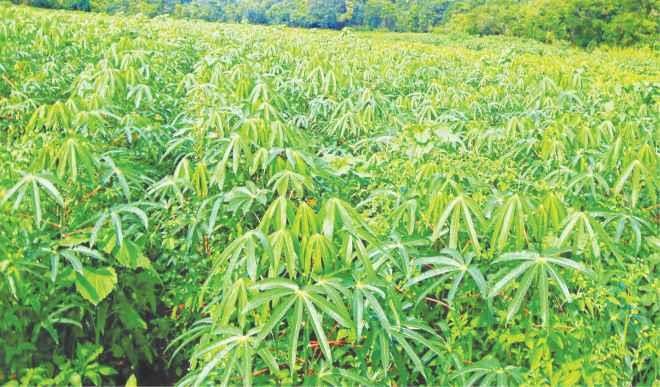Cassava farming declining in Katsina
Cassava farming in Katsina State is on the decline, Daily Trust’s investigation has revealed. This is coming just as the African Agricultural Technology Foundation (AATF) has said although Nigeria is the highest grower of cassava in the world, it has a zero value chain for the produce. The AATF’s Communications and Partnerships Officer for West […]


Cassava farming in Katsina State is on the decline, Daily Trust’s investigation has revealed.
This is coming just as the African Agricultural Technology Foundation (AATF) has said although Nigeria is the highest grower of cassava in the world, it has a zero value chain for the produce.
The AATF’s Communications and Partnerships Officer for West Africa, Mr. Abu Umar, stated this at a stakeholders’ meeting on cassava in Abeokuta, Ogun State.
He said the government should find solution to the lack of value chain for cassava otherwise the country’s agricultural sector would not develop fast.
For decades in Katsina State, rural farmers have been into cassava production essentially for local consumption.
However, the gradual change in the agricultural trend across the country is causing a decline in the production of cassava in the state.
This reporter visited some communities in the state and discovered that most of the farmers concentrate more on maize, sorghum and soya beans farming.
Local farmers in the state told Daily Trust that their lands were fertile for growing cassava but that their interest in its cultivation is generally declining.
Malam Sani Usman, a long time cassava farmer in the state, attributed the situation partly to the long time it usually takes for the cassava crop to reach maturity.
He said many farmers could no longer wait a year before they harvest cassava, a situation, he said, that usually force them to turn to cereal crops that will give them more yield and revenue at a shorter period.
“Farmers are no longer patient and the get-rich quick attitude is affecting their choice of crops for cultivation. This, among other factors, is responsible for the gradual decline in cassava production in the state. But because cassava is at present only being consumed in rural and semi-urban areas of the state, we are yet to feel the impact of its short supply,” the farmer said.
He added that even with the significant increase in market value of the produce these days, farmers in the state still find it more lucrative to cultivate maize, sorghum and soya beans.
Malam Sani noted that for the revival of cassava production in the state, government needs to have a robust investment in its processing, storage and packaging so that people can cue into the produce’s value chain.
Another cassava farmer, Musa Danladi Danja, said for effective result in cassava farming, government should device a means of reaching out to the genuine farmers of the produce at the grassroots.
“The real cassava farmers are in remote areas, who are selling their produce to local consumers. Government can reach out to them through the provision of improved seedlings and extension services. This will help to augment the production and ascertain the actual volume of cassava produced in the state yearly.
“Relying on sometimes ‘phantom’ farmers associations based in the cities is not helping matters as far as agriculture is concerned,” he observed.
He said that Katsina State has the required arable land for cassava production but that the farmers need to be motivated, adding that the youth also need to be trained on how to process cassava into garri, taking into cognizance the high cost of the produce in the market.
An agri-entrepreneur, Alhaji Aliyu Isah, said the youths also need to think out of the box to revive cassava production in the state.
“There is the need for the youth in the state to look into the cassava value chain and see where to exploit to generate revenue. Over the years, we farmed cassava for only local consumption here, while we buy garri and cassava flour (alebo) from the South.
“If we can learn how to locally process the produce into garri and ‘alebo,’ in no distant time, cassava farming would become one of the viable ventures in the state,” he said.
Daily Trust observed that the few farmers that still cultivate the crop are making money from those that usually buy it to cook for local consumption.
A heap of tubers of cassava that were sold at N600 in the last three years now cost not less than N1,500.
This reporter also observed that it is now difficult to see the produce in the open market as buyers now follow the farmers to their farms to buy directly from them.
